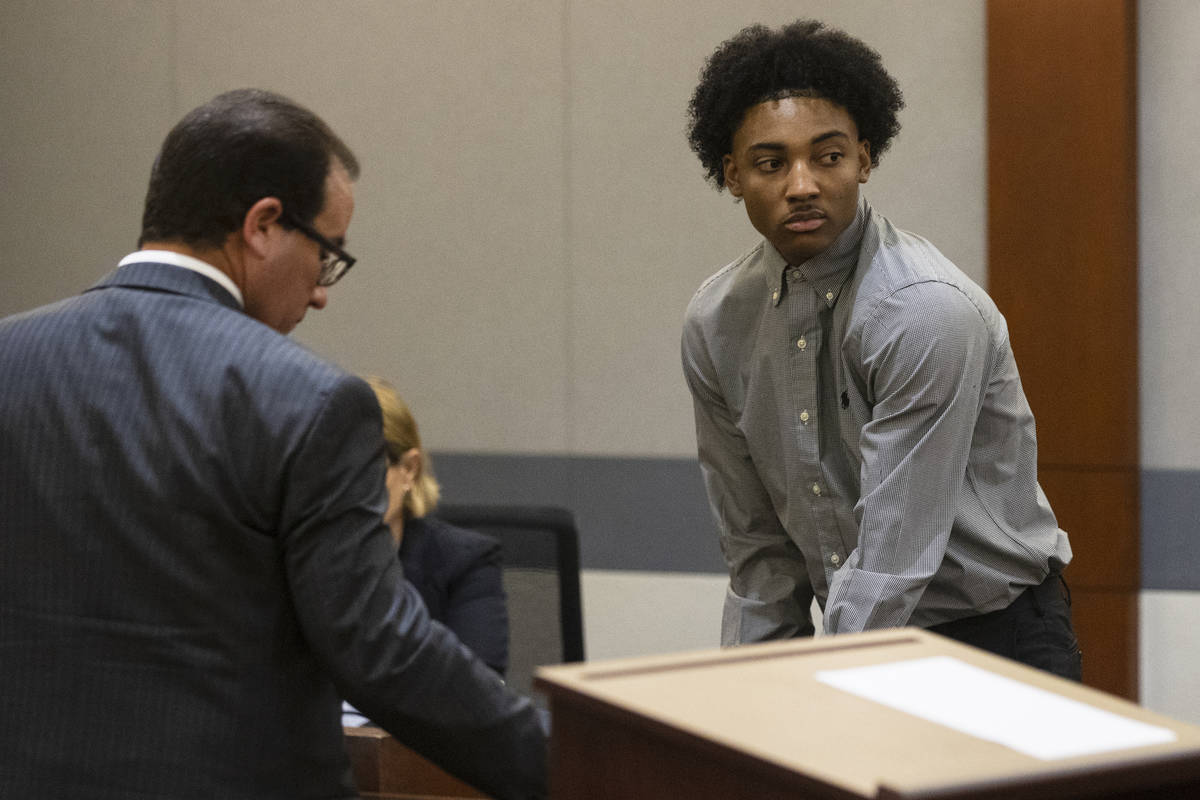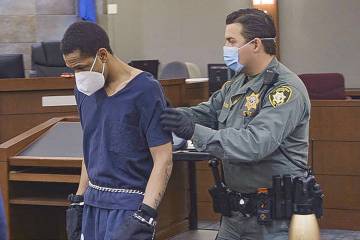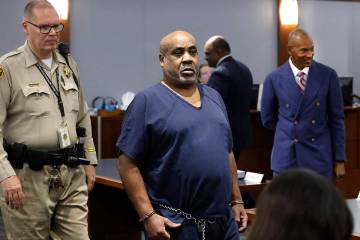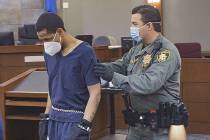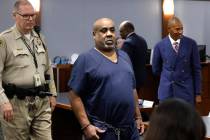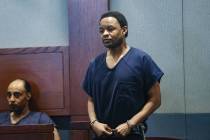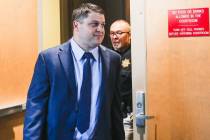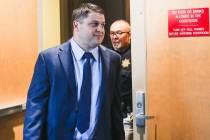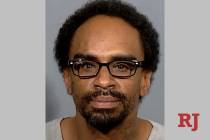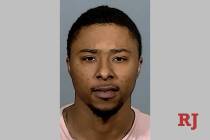Judge declines to dismiss DUI case against Zaon Collins
A Las Vegas judge has refused to dismiss a DUI case against basketball standout Zaon Collins in connection with a deadly wreck.
Collins’ attorney Richard Schonfeld argued last week that Collins was not impaired by marijuana at the time of a December crash that left Eric Echevarria dead.
But Las Vegas Justice of the Peace Suzan Baucum denied the motion in an order handed down late Monday.
The Dec. 30 collision occurred near Fort Apache and Blue Diamond roads in southwest Las Vegas. Authorities have said Collins, 19 at the time, was driving his 2016 Dodge Challenger at nearly 90 mph in a 35 mph zone when he crashed into a 2016 Hyundai Accent driven by Echevarria, a military veteran and an elementary school employee.
Echevarria, 52, died on the way to a hospital.
Collins, who played at Bishop Gorman High School before he was recruited by UNLV, was charged with DUI resulting in death and reckless driving.
Echevarria was an Army and National Guard veteran who grew up in New York City and had called Las Vegas home for about two decades. He is survived by his wife, a teenage son, four adult stepchildren, six grandchildren, a sister and an older brother.
Earlier this year, a grand jury heard from a forensic scientist for the Metropolitan Police Department, who testified that there have not been enough studies to show when Collins might have consumed the marijuana found in his system.
The grand jury in March declined to indict Collins on the DUI charge but approved one count of reckless driving. Prosecutors continued to pursue both counts in Justice Court, and are expected to move forward with a preliminary hearing, where the judge would decide whether prosecutors have enough evidence to take the case to trial.
“We are confident in the positions we’ve taken,” Clark County District Attorney Steve Wolfson said Tuesday. “The defense has a right to challenge certain items of evidence. But at the end of the day, we feel confident in our decisions.”
Las Vegas police said “a green leafy substance consistent with marijuana” was found near the driver’s seat of Collins’ vehicle during the investigation, and, according to a blood test, the basketball player had 3.0 nanograms per milliliter of THC in his system. The legal limit for drivers in Nevada is 2.0 nanograms per milliliter.
Separately, lawyers for Collins, Schonfeld and David Chesnoff, had asked the judge to throw out the teen’s blood test results, arguing in part that one of the first officers who responded to the scene found “no signs of impairment,” and that the level of THC in his system was so low that it could have been consumed days before the crash.
“We will be filing an appeal as we believe that the court’s orders have gaps in the factual and legal analysis used to reach the outcome,” Schonfeld and Chesnoff wrote in a statement to the Review-Journal. “These issues are far too important for the people of Nevada to be left without further review.”
Chief Deputy District Attorney Eric Bauman pointed to evidence that showed that the drug could still have affected Collins.
The judge pointed out that another officer who saw Collins at the University Medical Center after the crash and “observed a lack of convergence and eyelid tremors,” along with “eyes to be blood shot, watery.” Baucum’s order also cited a police description of Collins driving at a “high rate of speed” before the wreck.
“Defendant’s arguments appear to be based on his view of what defendant says ‘science’ dictates the law should be,” the judge wrote. “Such arguments fail to grasp both the nature of a ‘per se’ violation of the law as well as Nevada case law.”
Contact David Ferrara at dferrara@reviewjournal.com or 702-380-1039. Follow @randompoker on Twitter.



